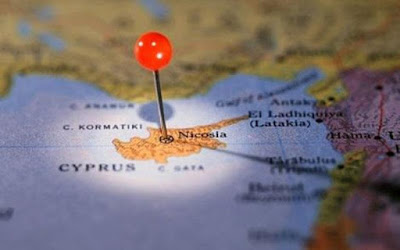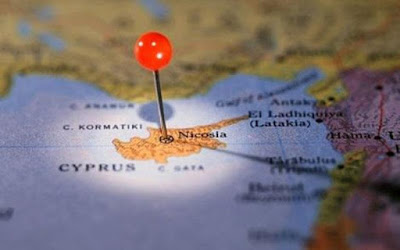The issue of security is a matter of priority in both communities. Based on research by the Center for Sustainable Peace and Democratic Development (SeeD), conducted in collaboration with international partners, the Berghof Foundation and Interpeace, interesting findings emerge, as well as many common concerns.
In view of the ongoing process of negotiations in Geneva, the results of the survey are gaining increasing interest and weight. The survey was conducted in both the free and occupied areas and is not limited to the Security chapter.
The important thing is that through the research a security architecture emerges, while at the same time solutions commonly accepted by the Cypriots are proposed (the public opinion polls were taken into account).
This is achieved through the creation of mechanisms of prevention and resilience of the institutions. This leads, as noted, to the independence of the Cypriot state. Issues such as early prevention include the delimitation of the EEZ and the distribution of natural gas profits. Also the operation of the Federal Committee for Human Rights and Gender Equality, the effectiveness of Justice, etc.
Troops - guarantees
The issue of Turkish troops and guarantees with various variants (only for the C / C constituent state, on a military basis, for a transitional period of five years and to be abolished) is overwhelmingly rejected by the Greek Cypriots with percentages ranging to 90%. On the Turkish Cypriot side, there is a clear tendency for a Turkish military presence after an agreement is reached, but the percentages vary depending on the degree of involvement.
For example, 68% support a military presence in the constituent state. 59% want a Turkish base in the region to be ruled by the British (dominant) model. 46% are in favor of Turkey's unilateral right of intervention in case the parliament of the constituent state deems it necessary. 41% believe that the Turkish Cypriot component should be able to call on Turkey to intervene, regardless of whether it has no army in Cyprus after the solution.
53% support the presence of Turkey in a wider peacekeeping force without being able to intervene in the internal affairs of Cyprus. 36% are in favor of the transitional period of five years, after which the guarantees will be abolished. 27% are against this arrangement and 37% feel less secure with this arrangement.
Russia guarantor
The answers given by the citizens to the countries of trust to guarantee them are interesting. 53% of Greek Cypriots consider Russia as a potential guarantor country, 41% a group of countries outside Greece, Turkey or countries of the five permanent members of the Security Council), 41% France, 42% Greece, 39% China, 26% USA, 13,3% Turkey.
For the Turkish Cypriots 69% Turkey, 34% Greece, Britain 21%, group of countries outside Greece, Turkey or countries with five permanent members of the Security Council 12%, USA 16%, France 10%, China 10%, Russia 10%.
The role of the European Union
Both the Greek Cypriots, a higher percentage, and the Turkish Cypriots, accept the role of the European Union and this stems from the fact that Cyprus is a member state. This reality is not disputed by anyone.
83% of Turkish Cypriots, who feel less secure if there is a clause for holding a referendum in the Turkish Cypriots on independence if the agreement is violated, are in favor of institutional reforms in the constituent states to remove any remnants of Turkey's direct participation. 75%). On the same questions, the Turkish Cypriots are in favor of the right to independence (60%).
For the form of the solution, the bi-zonal bi-communal federation is considered tolerable under certain conditions concerning the Security and the presence of Turkey.
The referendum
Greek Cypriots: 32% will vote or almost will vote no, it is for no but it can be oriented towards yes 12%, they will vote yes but maybe not 18%, they will vote yes 23%. Turkish Cypriots: Will vote or almost vote no 17%, is for no but can be oriented towards yes 16%, will vote yes but may not 24%, will vote yes 21%.
SECURITY THREAT CATEGORIES
According to the research, there are eight categories of security threats. These eight include 62 security threats, of which 35 are common and relate to obligations during the transition period, functionality, financial security, etc. A key element is that there are concerns about the arrangements that will be agreed during the transition period, as the communities want to feel safe.
It is clear that people want to be more confident about the transitional arrangements and feel more secure about the viability and overall duration of the agreement.
For the Turkish Cypriots in particular, the fears concern the behavior of the extreme right and extremist elements, as well as their possible marginalization by the decision-making mechanisms related to the distribution of power. They are still concerned about competition in the economy and the financing system.
The biggest problem for the Greek Cypriots is the guarantees and the troops. They are clearly afraid of Turkish interference in the internal affairs of the state. There is concern about abuse of power by guarantors. At the same time, the Greek Cypriots have a clear perception of a lack of sovereignty due to the presence of Turkish troops. There is also concern about the fact that the e / k constituent state will lift the weight of the economy for the cost of the solution etc.
Presented in Geneva
The investigation is presented to those involved in the negotiation process. Yesterday, a team of researchers briefed members of the National Council in Geneva. At the same time, a second group briefed Turkish Cypriot politicians, who are also in Geneva. The Cypriot Government is also aware.
It is noted that the survey was conducted through interviews with opinion leaders, influential people in both communities, but also from polls conducted in the free areas and in the occupied areas.
Source: Liberal

